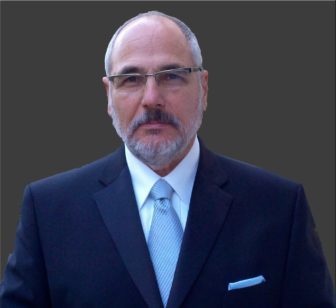It’s been a week of major transitions for the Center for Sustainable Journalism (CSJ), which publishes the Juvenile Justice Information Exchange (JJIE) and Youth Today.
First the news: As of June 1, I moved from a full professor at Kennesaw State University (KSU) to Professor Emeritus in Communication. Which means although I am retiring from the university and as executive director of the CSJ, I will still have an advisory role and might even participate in some projects.

Leonard Witt
The time is right for me to make the transition. When I arrived at KSU in 2002 I thought I might be here for a few years and then retire. But alas time flies when you are having fun — and doing work that has the capacity for real change, especially in the lives of youth. In our case, we do journalism to inform the general public and change makers. More than 8,000 of the latter have opted into our JJIE and Youth Today newsletter and email lists.
Over the years, we have grown our combined audiences to more than 750,000 unique visitors viewing more than 1.2 million pages. But that is only part of the bigger story. National and regional news media regularly use the stories and videos that our excellent editorial staff produce on issues that vary from youth sentencing, foster care, homelessness, immigration, detention alternatives, racial equity, literacy, substance use and gun violence prevention.
In the last year, the Christian Science Monitor, Sojourners, the Seattle Times, Georgia Public Broadcasting, Santa Fe New Mexican, Baton Rouge Advocate, Mississippi Clarion Ledger, Birmingham News and Politico among others have used our stories and videos. For us, it is like a peer review of our work.
John Fleming, our executive editor, Leslie Lapides, our senior editor, Daryl Khan our New York City bureau chief, Stell Simonton, our Youth Today correspondent, and Chris Hayden, our designer, plus a long list of freelancers across the country ensure you are getting and will continue to get top notch journalism now and into the future.
Of course, there would be no CSJ and its publications without the generous support from a long list of funders, starting with Ruth Ann Harnisch of the Harnisch Foundation who saw merits in my blog posts, back when I was writing almost daily on the PJNet.org. I was examining ways to save journalism, which was in a free fall that continues today. Indeed, nonprofit news organizations like ours are helping fill the void produced by staff cuts across the industry caused by digital disruptions.
Our funders include:
- The Tow Foundation, our bureau at the Craig Newmark Graduate School of Journalism at CUNY,
- The Wallace Foundation, after school youth literacy and summer learning,
- Annie E. Casey Foundation, youth detention alternatives,
- Park Foundation, general operating and special projects in New York State and North Carolina,
- Raikes Foundation, homelessness and youth justice,
- Vital Projects Fund, sentencing reform
- Keneda Fund, gun violence prevention.
- Scripps Howard Foundation, investigative journalism
- Jonathan Logan Family Fund, NewsMatch 2018 incentives
- The MacArthur and Robert Bowne foundations funded our research and resource hubs.
Last year, audience members like you helped us raise more than $61,000 via your donations and NewsMatch 2018 matching funds and incentives.
We have succeeded since we began publishing in 2010 because we have never stood still. We conceived and launched the JJIE in 2010 and acquired the then 25-year-old Youth Today in 2012.
Now as part of the transition David Armstrong’s Georgia New Lab (GNL) is joining forces with the CSJ. The GNL recruits diverse cohorts of college students from Emory, Spelman, Morehouse, University of Georgia, Clark-Atlanta, Georgia State and KSU, and teaches them how to be investigative journalists. They learn by working directly with the Atlanta Journal Constitution (AJC) and Georgia Public Broadcasting editors. They produce hard-hitting journalism. Just yesterday a student investigation was published on the front page of the AJC’s Sunday newspaper revealing that county tax collectors across Georgia, where paying themselves collection fees in addition to their five and six-figure salaries.
Students have always been central to work. Khan does a magnificent job with CUNY students. The CSJ proper has employed more than 80 students over the years. All are paid and mentored to do important work, including business, journalism, social media, photography, videography and fundraising. I am most proud that nearly 100 percent have graduated.
Our leadership team of Fleming, Armstrong and Lapides on the journalism side and Chelsey Odom on the business side fairly guarantee that the transition will be smooth. The combined CSJ and GNL will prosper long into the future and provide the news and information to improve the lives of marginalized youth, their families and communities.
I have been so blessed to be part of this and thanks so much to each of you for your interest in ensuring that all youth have equal opportunities to reach their fullest potential.
Leonard Witt founded the CSJ in 2010 and until now was the publisher of the JJIE and Youth Today. He joined KSU as the first holder of the Robert D. Fowler Distinguished Chair in Communication in 2002. He is heading to New Hampshire, just in time for the Presidential primary season.





























